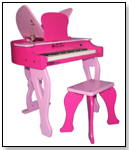|
|
When to Close Your Specialty Store - 36 Tips Sufficient Planning and Mourning Can Ease the PainSuccessful people fail more than others, so if you're facing a lot of red ink, don't despair. The entrepreneurial spirit that pushed you into opening a toy store can help you hurtle almost any obstacle — and any economy — as long as you have a strong support network and can listen non-defensively to new ideas. But when it is time to close up shop, give yourself sufficient time to mourn and to move on, experts advise. PERSPECTIVE COUNTS Entrepreneurs "don't see obstacles as interference. They see them as challenges, as a puzzle to work out." — Melvin Singer, psychiatrist
Hard times don't stop entrepreneurs, according to Melvin Singer, a psychiatrist and psychoanalyst in Penn Valley, Pa., who works with many high-powered executives and entrepreneurs. "They have a sense of confidence and they don't give up," he said. "They're masters of their fate and can make things happen." (see Think Like a Winner)  Ramona Pariente of Safari Ltd., maker of realistic animal figures and other toys, successfully transformed her business when it hit hard times. Ramona Pariente of Safari Ltd., maker of realistic animal figures and other toys, successfully transformed her business when it hit hard times.  "When I took over the company," said Pariente, "I had this enormous task: Revitalize the branding of Safari, which had become complacent in the marketplace. I analyzed and revised, revamped and redefined the selection and look of the company." "When I took over the company," said Pariente, "I had this enormous task: Revitalize the branding of Safari, which had become complacent in the marketplace. I analyzed and revised, revamped and redefined the selection and look of the company." Entrepreneurs "don't see obstacles as interference," continued Singer. "They see them as challenges, as a puzzle to work out." THE ECONOMY When the going gets tough, the tough get toys — or so said experts before this current recession. Some had even predicted that the recession would boost sales in the toy industry, not anticipating how the credit crunch would affect business straight down the line. "This is hope-based economic forecasting, not data-based economic forecasting," rebutted Economics and Real-estate Analyst Robert Campbell in spring 2008. "I think the economy is in for much harder times than most people 'want' you to think." Campbell had predicted a double-dip recession, with the "bloodiest" part coming in 2010. He doesn't see the economy moving steadily upwards until 2012. Smart storeowners adjust to bad times by analyzing their current market and rethinking their approach to business. (see How to Stay Up in a Down Market) AVOID COMPLACENCY Once your store's business is humming, you'll probably think you've got it all figured out — especially if it keeps on humming for a decade or more. But don't get too comfy.  Always Analyze Always Analyze "Every year, you have to highlight the trending-up and trending-down vendors," warned Miles Altman, owner for 25 years of King Arthur's Court Toys in Cincinnati, Ohio. No two years are alike, agreed Greg Bonner of Heights Toy Center in Little Rock, Ark. Changing suppliers — and strategies — is essential. Re-evaluate Strategies In 2005, Paul Blum, owner for 25 years of the world's largest costume store, Abracadabra in New York City, decided to yank his commercials and Yellow Page ads because he suspected that changing technology had made them superfluous. The move lowered his expenses and, "thanks to my fame and the Internet ... the store keeps going on like I'm advertising like crazy," he told TDmonthly. The new owners, Robert and Joe Pinzon, advertise in local papers during key holidays and parades but still don't bother with the Yellow Pages. "They Google us," Robert said of his customers. Create Multiple Revenue Streams 1. Cater to More Ages and Demographics. While Izilla Toys in Seattle stays primarily focused on specialty toys for children, an expansion into a larger space and different community allowed the store to bring in comic books and collectibles for older kids and adults. “It all fits together,” said Co-owner Jude Larene, who noted that once people started seeing the new products, word spread “like wildfire.” 2. Invest in New Departments. In 2008, Janet Gregory, owner of Over the Rainbow Toys in Anchorage, Alaska, opened a large book room with products ranging from board books for babies to novels for young adults. “There's nowhere on this end of town to buy books, and a good selection of kids’ books isn't easy to find anyway,” she told TDmonthly. 3. Become a Consultant. “I help a lot of new toy inventors get an opinion,” said Christine Osborne, owner of two Wonder Works stores in South Carolina. Charging by the hour allows her to step away from her primary business duties and spend dedicated time with people who come to her for advice. She provides focused critique and brainstorming on their product or idea based on nearly 20 years of running her own business. 4. Become a Distributor. Kathleen Tutone, owner of Treehouse Toys in Portsmouth, N.H., and Portland, Me., also owns Magicforest — the U.S. distributor for Trudi toys from Italy and France's Moulin Roty. Geppetto's Toy Box in Oak Park, Ill., distributes Woodland Magic Imports and Fagus. 5. Incorporate Other Activities. At On The Park of Kingwood, Texas, Owner Fred Rosenberg opened a café inside his store for weary parents. They can buy coffee, hot chocolate and even chocolate covered strawberries, along with the store's other confectionary offerings. 6. Offer New Services. Little Locks Children's Salon and Toy Boutique in La Jolla, Calif., started as a hairdresser for kids, with toys that parents purchased as a reward. Since then, the toy store section has expanded, and Owner Lesley Webb told TDmonthly in 2007 that kids shopping as they waited for their haircuts really boosted toy sales. 7. Host Children's Events. “We do on-site birthday parties, which is huge,” said Colleen Nelson, owner of Goodie Gumdrops in Burien, Wash. Nelson also donates her popular birthday party service to charities and school auctions, generating business when families later plan their parties and invite friends. Don't Waste Your Profits "Sales were way above expectations that first year," said Adeena Mignogna, author of "Cute Little Store" and former owner of The Pot & Bead craft store. "Unfortunately, I didn't have the discipline to not spend the extra money. My lack of spending discipline hurt us for awhile." Look Through Other Lenses If you've hit an obstacle you're not sure how to surmount, ignoring or minimizing it won't help, but calling in your troops and getting a new perspective on the problem might.  "Bring in people who know your field and those who don't know your field but who can give you sound advice," advised Carole Hyatt, co-author with Linda Gottlieb of "When Smart People Fail: Rebuilding Yourself for Success." Don't just consult with them, she suggested; actually bring them all together physically in one room so they can feed off each other's creativity. "Bring in people who know your field and those who don't know your field but who can give you sound advice," advised Carole Hyatt, co-author with Linda Gottlieb of "When Smart People Fail: Rebuilding Yourself for Success." Don't just consult with them, she suggested; actually bring them all together physically in one room so they can feed off each other's creativity. She warns against being defensive or dismissive of their suggestions, even if they sound familiar. "You really want to become an active listener and take information in," she continued. "Don't say, 'That's the way I've operated for 40 years; why should I change it?' Don't talk back. Listen in a way where you are saying, 'Tell me more about that.'" To get the most of your think tank, she advises recording the session or assigning a friend to write down everything that's being said. "You won't even hear it, you're so busy defending yourself," she counseled. Later, you can read the notes or listen to the tape more objectively. READY ... AIM ... FIRE YOURSELF No matter what the economy, if your store starts to falter, at some point you may need to bail. How can you do it without losing self-esteem, capital and the will to start again? Plan Ahead Your business plan should include an exit strategy. Though you may plan to be wildly successful, and may even achieve that goal, circumstances such as your own loss of interest once the business gets going, illness or family emergencies may force you to close the store sooner than you'd anticipated. Having a realistic exit plan in place from the start will help you make the transition from business owner to ex-owner, advises Adeena Mignona, author of Cute Little Store and Cute LIttle Store 2. Get Out in Time "Don´t stay on a sinking ship!" warned Howard J. Schwartz of consulting firm HJ Ventures International in 2004. "Your business is not your 'child.' What this means is most small-business owners do not know when to quit. They hold on for dear life while their personal assets dwindle, since they wind up funding payroll and rent personally. It is very difficult to look in the mirror and honestly say things are not working out and it is time to move out. Too often, small-business owners wind up in debt and then are forced to close the store. So they lose the business and then are personally responsible for the debts for years, sometimes decades after." Admit Defeat Though it may break your heart and crush your ego, if you and your think tank have run out of solutions, you've also run out of time. "Don't just hang on when you know it's over," seconded Hyatt. "The worst thing you can do is present a great picture of success at every cocktail party, every dinner party, to every friend you meet. That really leads to outright failure." Talking honestly about mistakes, failure and disappointment may be difficult — especially for men — but it's essential to facing reality and moving on. Mourn "People are willing to help you if you are willing to face reality." — Carole C. Hyatt, co-author of "When Smart People Fail"
"You're going to personalize the failure," said Hyatt, who equates losing a business to losing a loved one. "If you go into mourning, that's a very personal thing. You have a right to mourn." She firmly advises people who've lost their jobs or their businesses to talk about their feelings with trusted friends. "You have a right to tell other people you're mourning and ask what they think because you can't think straight," she said. "People are willing to help you if you are willing to face reality." Mourn Together Idanna Smith refrained from telling customers that the end was near for her 25-year-old, Wakefield, R.I., Juggles toy store until a month before it closed at the end of 2007.  "Everyone was sad!" she said. Displaying photos of her grandchildren along with a local news article about her decision helped people adjust, since they understood her priorities had shifted toward spending more time with her family. "Everyone was sad!" she said. Displaying photos of her grandchildren along with a local news article about her decision helped people adjust, since they understood her priorities had shifted toward spending more time with her family. During the final sales days, she served juice and cookies as customers searched through the rows of bargains. "It ended up being uplifting — a chance to talk and hug." And by the last week of December, she'd reached her goal: an empty store. Get Help "It's very important to recognize and be willing to admit there's a close link between someone's work happiness and sense of identify through career and mental health," said Darrell A. Luzzo, former president of the National Career Development Association, who recommends professional help during such a stressful life transition. "Career counselors are mental health professionals first." Act Fast ... and Furiously Though Mignogna said her sales were steady, after two years she decided the craft business wasn't for her. She put The Pot & Bead on the market in the spring of 2005. "I was under the impression that I could work with a business broker, and he would take care of everything," she shared with TDmonthly. "I really should have either tried to sell myself, or pushed a lot harder with the broker back in 2005, when the business was 'buyable.'" She finally fired the broker and tried to sell the store herself. By the end of 2007, she'd signed a sales agreement with a potential buyer, but, owing to the mortgage crisis, he was unable to secure a business loan. "I realized that in this climate, I wasn't going to find a better buyer or situation," she lamented. What would she do differently, if given a second chance? "When I decided to sell back in 2005, I would have put as much energy and gusto into that as I did when I opened the business," she told TDmonthly. "I finally 'got that' and tried it at the end of 2007, but it was too late!" Set New Goals Luzzo suggested that most storeowners will probably want to open another type of business by identifying a new need in their community and working with the Small Business Administration. Others, however, may welcome a break from entrepreneurship and can transfer their skills to more traditional employment. (see Help With Career Transitions) Give Yourself Time Any loss of status, ego and/or money must be mourned, so Hyatt cautioned against rushing into a new venture too soon. "You need time to think, analyze what went wrong and to reinterpret your story," she said. For those who don't have the financial resources to take time off, she suggested going back to something you'd done before. "Your ego doesn't like it, but your reality is that it's a must," she emphasized. "Go back to something simple and get through the mourning period." If you don't want to return to a former job, you might look for ways to get paid with other skills you have, or simply use your skills to complete tasks that you formerly hired others to do, such as having the house painted. "You're not going to get that high-paying job right now; no one is," said Hyatt, speaking in the middle of the financial crisis in fall 2008. "Now is the time to say, 'OK. I'm just going to make it and not have to reinvent myself.' It takes enormous energy and money and thought and all your friends' and relatives' help to reinvent yourself, and they're not in that position right now, or can't come forth so quickly," she emphasized.  Writer's Bio: ALISON MAREK is an award-winning writer, director and cartoonist whose work has been published by Fairchild Publications and DC Comics (Piranha Press), broadcast on Showtime and other cable networks, and viewed worldwide in film festivals. See her short films and print work on www.alisonmarek.com. Watch her nefarious villains in the web series www.MuggsMovers.com. Get inspired by her cartoons "Daily ARFFirmations to Unleash Your Inner Fido" at www.ARFFirmations.com. Phew! And then ... Read more articles by this author Writer's Bio: ALISON MAREK is an award-winning writer, director and cartoonist whose work has been published by Fairchild Publications and DC Comics (Piranha Press), broadcast on Showtime and other cable networks, and viewed worldwide in film festivals. See her short films and print work on www.alisonmarek.com. Watch her nefarious villains in the web series www.MuggsMovers.com. Get inspired by her cartoons "Daily ARFFirmations to Unleash Your Inner Fido" at www.ARFFirmations.com. Phew! And then ... Read more articles by this author |
| ||||||||||||||||||||||||||||||||
Disclaimer Privacy Policy Career Opportunities
Use of this site constitutes acceptance of our Terms of Use.
© Copyright 2025 PlayZak®, a division of ToyDirectory.com®, Inc.



